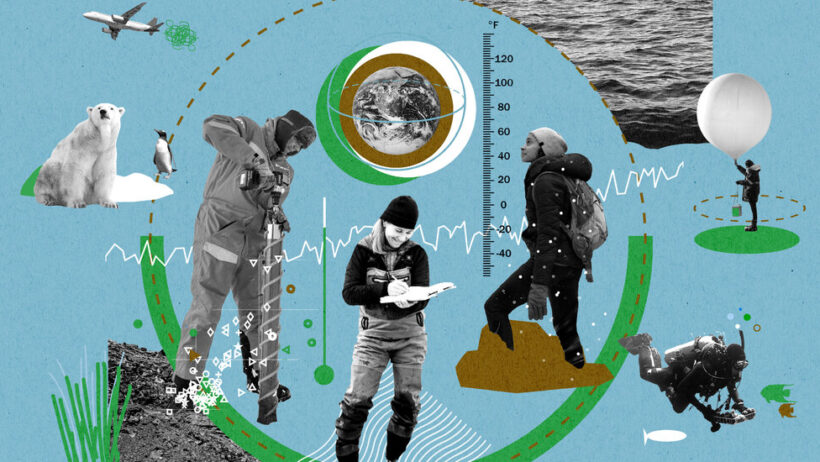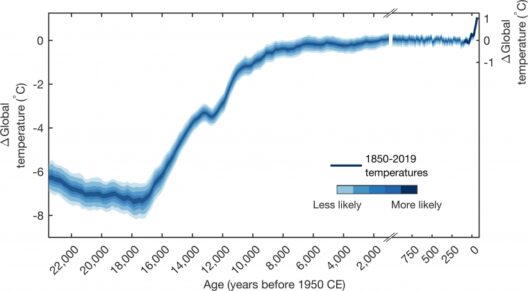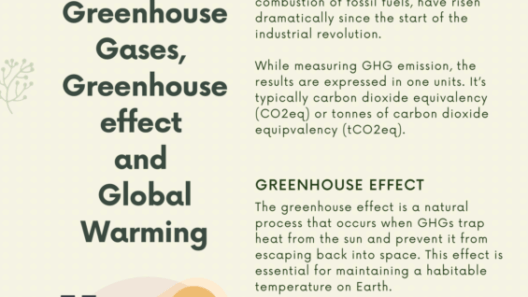As we revolve around the sun like an unyielding gear in a colossal clockwork, the planet continues to warm, driven by a phenomenon both bewildering and sinister: global warming. This climatic cataclysm serves as a testament to a world enthralled by progress yet straddled by the shackles of fossil fuel dependency. The intricate interplay of human industrialization and Earth’s biosphere is not merely an energy equation; it is a defining paradox of modern civilization.
The fulcrum of this crisis lies in the combustion of fossil fuels—coal, oil, and natural gas—whose extraction and consumption provoke climate instability. Analogous to adding steroids to an already volatile organism, these fuels invigorate our yearning for instant gratification while deteriorating the very foundation of ecological balance. The existential threats posed by global warming stem largely from the prodigious amounts of carbon dioxide and other greenhouse gases released into the atmosphere as we burn these energy sources.
At the molecular level, carbon dioxide functions like a transparent blanket that ensnares heat, contributing to the escalating greenhouse effect. As we continue to exhale and translate our energy needs into emissions, we enhance this effect, trapping more heat and causing an inexorable increase in global temperatures. The resultant fever is evident; oceans warm, ice caps recede, and unpredictable weather patterns ensue. Each flicker of warmth is a vignette from a tragic script that humanity has unwittingly authored.
The narrative of fossil fuels is steeped in history, commencing with the dawn of the Industrial Revolution. The allure of steam engines, mechanized agriculture, and the urban metamorphosis heralded an era of unprecedented economic growth. What was once a seasonally dictated lifestyle turned into a relentless pursuit of advancement. Yet, lurking beneath this societal acceleration was a fundamental disconnection from the natural order. This indifference has peeled away layers of environmental stability, exposing humanity to cataclysmic consequences.
As populations burgeoned, the insatiable thirst for energy burgeoned alongside. Dirt roads transformed into sprawling highways, and small villages morphed into concrete jungles, all fueled by a fossil-fueled dream. The iron spires of progress punctuated the sky, yet with each construction, the earth trembled in retaliation. The ecosystems that had thrived for millennia began to crumble under pressure, as evidence of our ecological transgressions became irrefutably crystallized.
Fossil fuel extraction is an arduous process, often complete with its own horrors. The extraction sites, from fracking fields to oil sands, cleave through landscapes, creating gaping wounds in the earth. These locales are terrifyingly evocative; they resemble battlefields, scarred and lifeless. Amidst this destruction lies the oft-ignored reality: the health implications of fossil fuel combustion extend beyond climate change. Respiratory illnesses, cardiovascular diseases, and even neurological disorders are aggravated by the pollutants released into the air, earning fossil fuels the dubious title of ‘silent killers.’ The air we breathe becomes laced with a toxic blend of particulates that assail our bodies with each inhalation.
Transitioning from fossil fuels to renewable energy sources is imperative to extricate ourselves from this destructive cycle. Entities associated with the fossil fuel industry have, in many cases, resisted this transition, adhering to the status quo in the name of economic stability. It is here that we confront another metaphor: we are akin to a ship navigating through foggy waters, beholden to the captain’s commands, yet yearning for a beacon of hope that is sustainable energy represented by wind, solar, and hydroelectric power.
Renewable energy is that guiding light, stripping away layers of dependence on fossil fuels. The sun, a colossal ball of nuclear fusion, offers a relentless source of energy, prompting us to harness its rays as a lifeline for survival. Wind turbines, like turbines of industrial giants sweeping through fields, disrupt the tides of fossil fuel dependence, generating clean power while standing as symbols of resilience. The taps of nature’s bounty beckon our ingenuity, heralding a future of energy independence that eschews the chains of carbon and resource depletion.
As we contemplate the consequences of our fossil-fueled future, we must grapple with the harrowing reality of climate change’s implications—rising sea levels that threaten coastal communities, agricultural productivity challenged by erratic weather, and biodiversity loss at an alarming pace. The profound interconnectedness of global ecosystems means that each drop in temperature reverberates across myriad species, destabilizing entire ecological networks. In this complex tapestry, every thread holds significance, and to unravel one contributes to a greater unraveling.
There exists a possibility to reclaim our course and reforge our destinies. A transition molded by innovation, governmental policy, and grassroots initiatives can usher in a renaissance of sustainable practices. Educational outlets can illuminate the dangers of fossil fuel reliance, tempering minds hungry for knowledge and awakening a generation of climate-conscious citizens who demand change. The reality of climate change is not just a problem for scientists or environmentalists; it is a pressing issue for every inhabitant of this planet.
The challenge now is not mere survival but fostering a future where fossil fuels become relics of an antiquated era, overshadowed by renewable energy and sustainable practices. This transformative journey requires collective action and unwavering resolve. As we face the fiery embrace of a warming planet, let us not be mere spectators; instead, let us be the architects of our fate, crafting a legacy of ecological stewardship rather than apathy.
In this age of climate urgency, we are urged not to falter but to rise. The stakes are immeasurable, and the time is now to transition from a fossil-fueled future into the embrace of sustainable energy. Together, we can ensure that our planet, our only home, thrives long into the future.







